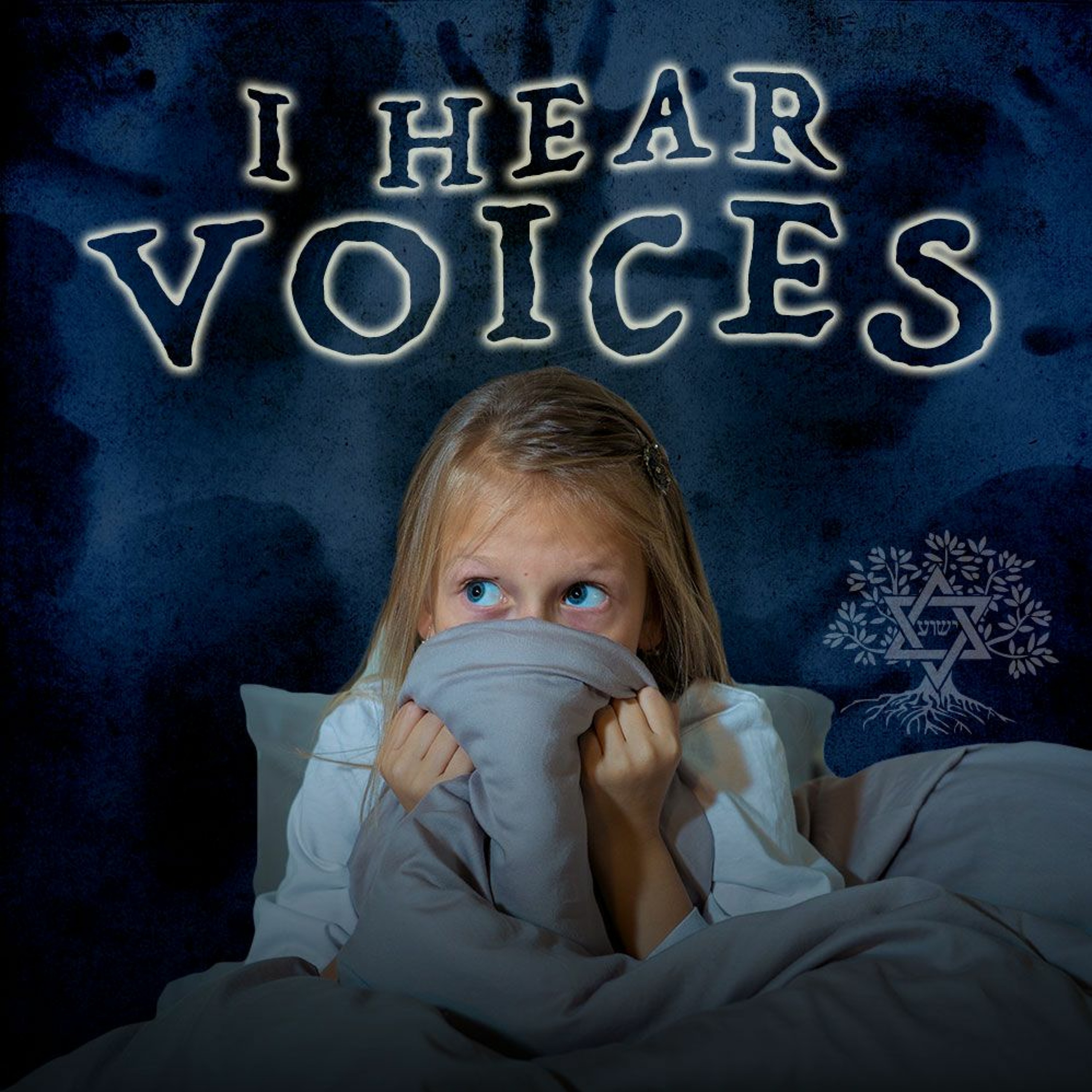[00:00:00] The daughter of a pagan priest, two adopted sons, a marriage contract, and an Israelite who walked like an Egyptian. How do all of these seemingly random things come together to teach us about Paul's radical good news for Gentiles? Stick around and find out in this week's Five Minute Torah Shalom and Blessings from Shalom Makin, the place where disciples of Yeshua learn, connect and grow. I'm Darren and before I get into the five minutes of my five Minute Torah commentary, let's cover a few quick facts about this week's Torah portion. This week we are wrapping up the Book of Genesis with the Torah portion of Vayikhi Genesis 47:28 through 50:26 and here are the three things that you need to know about it. Number one a Sabbath tradition the blessing of Ephraim and Manasseh Every Friday night around the Shabbat table, fathers place their hands on the heads of their sons and and bless them with the blessing Yisimcha Elokim KE Ephraim v'chhinasha. May God make you like Ephraim and Manasseh. Many people know about Jacob crossing his hands when he blessed Ephraim and Manasseh, placing his right hand on Ephraim the younger and his left hand on Manasseh the older. But not many people know that Jacob himself began this tradition of blessing one's sons like we do on Friday nights when when he told them, by you Israel will pronounce blessings saying, God make you as Ephraim and Manasseh. This is from Genesis 48:20. It's a tradition that we can all participate in, as it says, and his offspring shall become a multitude of nations. Genesis 48:19 Number 2 Tribal blessings the prophecy of kingship each of the twelve sons of Jacob received a blessing from their father on his deathbed. He speaks to them, each according to their need. For some, it sounds more like a curse than a blessing. But sometimes we need correction so that we can steer away from the path we're on and head in the direction that will make us the person we're destined to become. Among the brothers, Judah and Joseph definitely received the lion's share of the blessings from their father. Through this, Judah is established as the kingly line with the statement, the scepter shall not depart from Judah, nor the ruler's staff from between his feet, until the tribute comes to him. And to him shall be the obedience of the peoples. Genesis 49:10 and number three a time to cry the death of Jacob and Joseph. Jacob dies at the ripe old age of 147 years old and is mourned by all of Egypt for 70 days. Just as he had promised his father, Joseph returns his body to Canaan and buries him in the cave of Machpelah. Joseph went with the great entourage, including all the servants of Pharaoh, the elders of his household, and all the elders of the land of Egypt, as well as all the household of Joseph, his brothers, his father's house, and there went up with him both chariots and horsemen. It was a very great company. This is Genesis 57:9. Joseph returned to Egypt and lived until he was 110 years old. Before he died, he made his family swear to bury him in Canaan as well, but for whatever reason his family doesn't take his body to Canaan. The last line of our Torah portion tells us so Joseph died being 110 years old. They embalmed him and put him in a coffin in Egypt. If you're looking for a place to learn, connect and grow, then Shalom Macon is the place. It doesn't matter where you are in the world. You can find a connection with Shalom Macon through our live services every Saturday and through our private social network we call Shalom at Home. Check us out on YouTube and on our
[email protected] for more information. We look forward to connecting with you and seeing you this Shabbat this week's Torah commentary is called who Are these? And comes from my book 5 Minute Torah, Volume 3. When Jacob was 147 years old, he realized his life on this earth was coming to an end. He called Joseph to him and made him swear that when Jacob departed from this life, Joseph would not bury his body in Egypt, but take it back to Canaan and bury it there later, when Joseph understood the severity of his father's illness, he brought his two sons, Ephraim and Manasseh, to his father so that he could bless them. And Jacob tells Joseph, and now your two sons who were born to you in the land of Egypt before I came to you in Egypt, are mine. Ephraim and Manasseh shall be mine, as Reuben and Simeon are, and the children that you fathered after them shall be yours. They shall be called by the name of their brothers and their inheritance. This is Genesis 48, 5 and 6. However, when Joseph presents his sons to his father, Jacob acts as if he doesn't know them. After being around them for the last 17 years, he asks Joseph, who are these? In verse 8. Most people attribute Jacob's question of their identity to his eyesight. Because just two verses later, the Torah tells us now the eyes of Israel were dim with age, so that he could not see. However, the Torah offers a deeper answer, one that can help us see a beautiful picture of what Yeshua has done for us. Most English translations render Joseph's response as they are my sons whom God has given me. Here, verse 9. However, the original Hebrew is slightly different and contains unusual wording. It says, they are my sons whom God has given me. With this, using the Hebrew word Bazeh, Rashi takes note of this unusual wording and asks what this is referring to. According to him, Joseph is showing his father his Ketubah, his marriage contract. At first, this seems a little absurd. Why would Joseph hold out his marriage contract in response to his father's question about his children? But if we think about it, this is the answer to the question that Jacob asks. Jacob knew Ephraim and Manasseh, so his question is not one of recognition, but one of identity. If we remember, Joseph had married Asenat, the daughter of Potipherah, priest of on. This is Genesis 41:45. Joseph marriage to an Egyptian, particularly the daughter of a pagan priest, would have undoubtedly been a concern for Jacob. Jacob most likely saw Ephraim and Manasseh as Gentiles and not as the heirs to Abraham's blessing and covenant. If Joseph showed Jacob his Ketubah, however, then Joseph would be saying that his wife was no longer the daughter of a pagan priest, but had given up her pagan identity for a new one. This allowed Jacob to see the true identity of his grandsons and the confidence to adopt him as his own. Therefore, Ephraim and Manasseh are considered to be the offspring of Abraham and heirs to the promises of Abraham, just as Joseph was you. Yeshua does something similar for Gentiles who come to him. He told his disciples, I have other sheep that are not of this fold. I must bring them also, and they will listen to my voice. So there will be one flock, one shepherd. This is John 10:16. Once we come to Yeshua and renounce our former identity, we take on a new identity. Yeshua's father looks at us not as pagans, but as one of his own. The apostle Paul was given divine revelation in this regard and developed a theology that was radical for his day. He said that Gentiles who have accepted Yeshua are grafted into the nourishing root of the olive tree of Israel. This is Romans 11:17, that they are fellow heirs, members of the same body and partakers of the promise in Messiah. Yeshua, this is Ephesians 3:6 and they are Abraham's offspring, heirs according to the promise. According to Galatians 3:39, if we are a Messiah, we have a place at the table, so to speak. We don't have to worry that our Father won't recognize us or claim us as his own. When the God of Abraham, Isaac and Jacob asks Yeshua, who are these? He will identify us as his sons and daughters, children of Abraham, heirs according to the promise. If you want to know more about Gentiles and our relationship to Torah, then be sure to check out my five minute Torah called Torah and Gentiles it. In it I delve into the implication of Acts 15 and what that means for us today. You can check it out right here.



